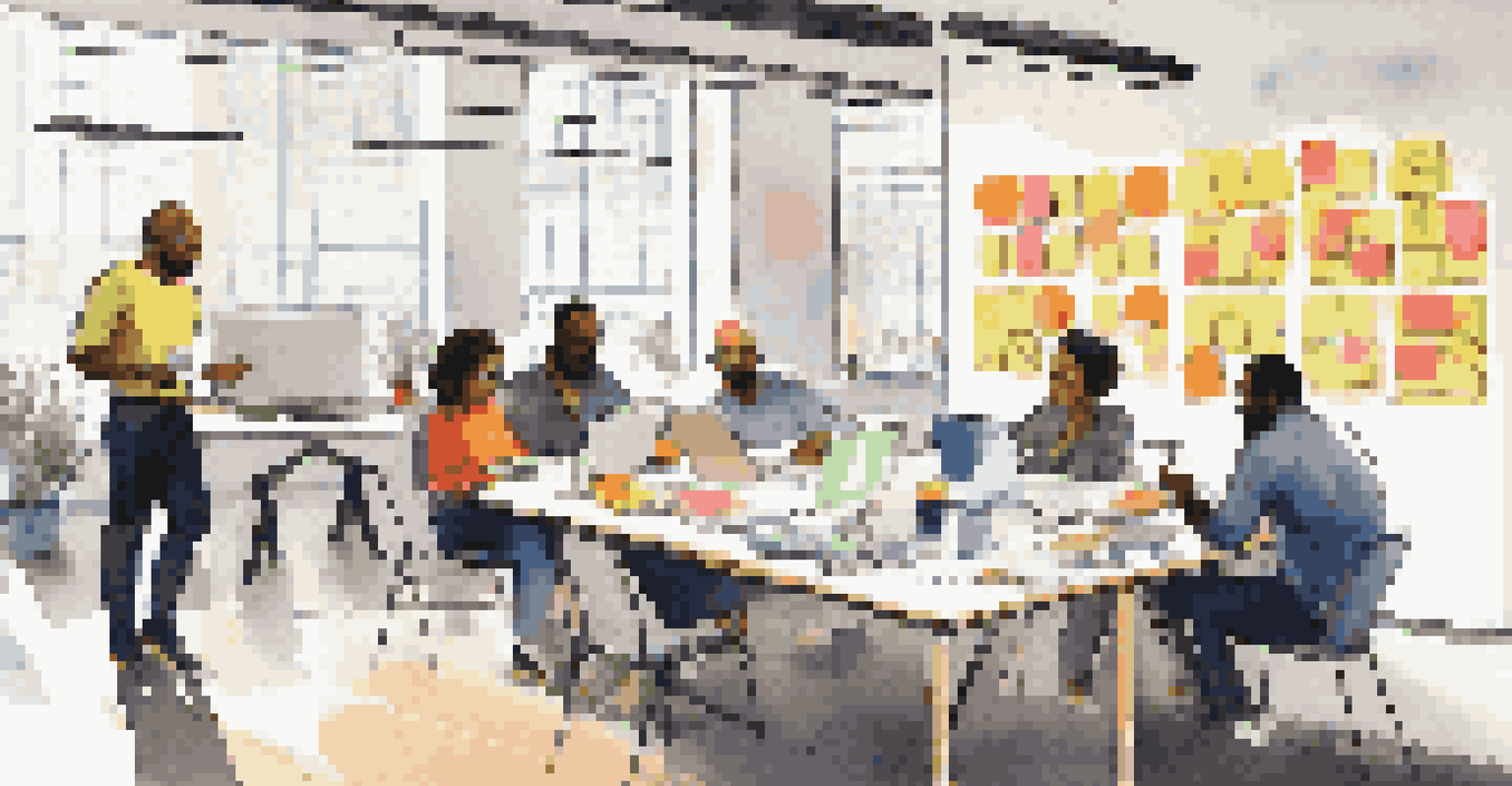Creating a Personal Adaptability Plan for Your Career

Understanding the Importance of Adaptability in Your Career
In today's fast-paced job market, adaptability is more crucial than ever. It refers to your ability to adjust to new conditions, technologies, and challenges that arise in your professional life. A strong adaptability skill set not only enhances your employability but also prepares you for unexpected changes in your career path.
It is not the strongest of the species that survive, nor the most intelligent, but the one most responsive to change.
Think of adaptability like a tree bending in the wind – it maintains its strength while changing its shape to withstand storms. Similarly, being adaptable allows you to thrive during uncertainty, whether it’s a sudden shift in your industry or a more personal change in your career goals.
By embracing adaptability, you become a lifelong learner, constantly seeking opportunities to grow and evolve. This mindset can open doors to new roles and experiences that you may not have considered before, ultimately leading to a richer, more fulfilling career.
Assessing Your Current Skills and Areas for Improvement
Before you can create your personal adaptability plan, it’s vital to assess where you currently stand. Take stock of your existing skills, strengths, and areas that could use some enhancement. A self-assessment can help you identify gaps in your knowledge or experience that might hinder your adaptability.

One effective way to evaluate your skills is to create a SWOT analysis, which explores your Strengths, Weaknesses, Opportunities, and Threats. This exercise not only clarifies your current position but also highlights areas for growth that could enhance your adaptability.
Adaptability is Key to Career Growth
Being adaptable enhances your employability and prepares you for unexpected changes in your career.
Don’t hesitate to seek feedback from colleagues or mentors; their insights can provide a fresh perspective on your capabilities. By understanding your current skill set, you’ll be better positioned to tailor your adaptability plan to address specific needs and goals.
Setting Clear Goals for Your Adaptability Journey
Once you’ve assessed your skills, the next step is to set clear and achievable goals. These goals should be specific, measurable, attainable, relevant, and time-bound (SMART). By establishing goals, you create a roadmap that guides your efforts toward becoming more adaptable in your career.
The measure of intelligence is the ability to change.
For instance, if you notice a gap in your digital skills, a goal could be to complete an online course within three months. This kind of structured approach makes it easier to track your progress and stay motivated as you work towards achieving your adaptability objectives.
Remember that adaptability isn’t just about reacting to change; it’s also about proactively seeking growth opportunities. Setting goals helps you stay focused on your development while preparing you to embrace new challenges as they arise.
Embracing Continuous Learning and Skill Development
To become more adaptable, committing to continuous learning is essential. This can take many forms, from formal education to self-directed study or even hands-on experiences. The idea is to keep expanding your skill set and knowledge base to stay relevant in your field.
Consider attending workshops, webinars, or networking events that can expose you to new ideas and practices. Engaging with industry peers can also broaden your perspective and introduce you to trends you might not have encountered otherwise.
Set SMART Goals for Improvement
Establishing clear, measurable goals helps you create a roadmap for becoming more adaptable in your professional journey.
By making learning a habit, you not only enhance your adaptability but also position yourself as a forward-thinking professional. This proactive approach can make you more appealing to potential employers and help you seize new opportunities.
Building a Support Network for Career Adaptability
Having a robust support network can significantly enhance your adaptability. Surrounding yourself with mentors, peers, and professionals in your industry creates a safety net of resources and knowledge. These connections can provide guidance, encouragement, and insights as you navigate your career journey.
Think of your support network as a team of coaches, ready to help you tackle challenges and celebrate your successes. They can offer valuable advice based on their own experiences and help you see different perspectives on the changes you face.
Additionally, engaging with your network can lead to new opportunities, collaborations, and insights that contribute to your adaptability. Building these relationships is as crucial as developing your skills, so invest time in nurturing them.
Practicing Flexibility in Real-World Scenarios
Adaptability is best learned through practice, so seek out opportunities to flex your adaptability muscles in real-world scenarios. Volunteer for cross-functional projects at work or take on roles outside your comfort zone. These experiences will challenge you to think on your feet and develop your problem-solving skills.
For example, if you’re typically in a technical role, consider volunteering for a project that requires client interaction. This not only broadens your skill set but also enhances your ability to adapt to various situations and team dynamics.
Continuous Learning Enhances Flexibility
Committing to ongoing education and skill development positions you as a forward-thinking professional ready for new opportunities.
Embrace these challenges as learning experiences rather than obstacles. Each scenario you navigate adds to your adaptability toolkit, making you more resilient and prepared for future changes in your career.
Evaluating and Adjusting Your Adaptability Plan Regularly
Creating your personal adaptability plan isn't a one-time effort; it requires ongoing evaluation and adjustment. Schedule regular check-ins to assess your progress against your goals. This reflection allows you to identify what’s working, what’s not, and where you might need to pivot your approach.
For example, if you find that a specific learning method isn’t effective for you, don’t hesitate to explore other options. Flexibility in your plan mirrors the adaptability you’re striving to cultivate in your career.

Moreover, the job market is constantly evolving, so your plan should evolve too. Staying responsive to new trends and emerging skills ensures that you remain relevant and prepared for whatever challenges come your way.